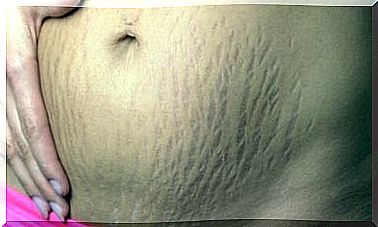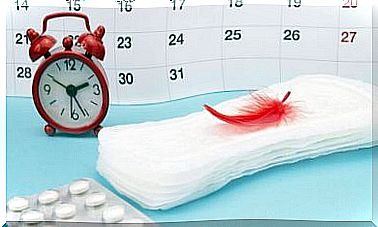Vital Care During Baby’s First Months
It is normal for parents to have difficulty recognizing the signals that babies emit to indicate the state they are in, especially if they are first-time parents. Therefore, it is necessary to recognize the care that is vital during the baby’s first months, even if the child does not express everything.
There are basic cares for babies, but there are also others that help them to feel more comfortable, contributing to their well-being, as they cannot do this on their own and expressing their needs freely is very difficult.
On many occasions, parents feel intimidated and admired for not being able to learn to handle their new role. For example, they don’t understand what to do during the baby’s first few months and at times tend to make many mistakes or seek help from more experienced people.
Vital care to take care of the baby during the first months
As incredible as it sounds, there are actually people who don’t even have the faintest idea how they should meet a baby’s needs; that’s why we created this space. It is also useful for those who believe they are doing everything right and this is not the case, or also for those who wish to confirm what they already know.
However, the main thing that we must rescue is that the lives of our little ones can depend on the wise application of these advices.
general care
- Nail care. Babies’ nails grow very quickly, so it is recommended that we cut them with scissors developed especially for them. Preferably it should be cut when they are sleeping.
- Hold them firmly. Babies are not as fragile as most people think, so they should be held gently but firmly and nothing will happen to them.
- Avoid scaring him when you pick him up in your arms; it is recommended to hold the baby gently due to the fact that he feels every movement and is scared a lot.
- Regulate the bath conditions. Remember that you can bathe the baby only with warm water and the tap (if warm water comes out of it); it’s imperative to be very careful that we don’t bump into something we’re using to bathe.
- The diaper change. A delicate part of the baby is the butt area, so when changing diapers it is necessary to ensure that it is completely dry to avoid irritation, or apply special ointments for this in the affected or prone to diaper rash regions.
- Avoid using talc. Experts do not advise using talcum powder, as it can be easily ingested by the baby. Beware of it!
- Adjust the amount of clothing. It is very common for them to dress the baby with a lot of clothes and although many do not believe, this can be very hot for them. But it is necessary to keep extra clothes in the bag in case of accidents with the diaper.
- Pay attention to your ears. Avoid using cotton swabs to clean your ears, this can be harmful, it is best to clean the outside area with a cloth and warm water.
food care
- Measure the amount of food. It should be remembered that babies’ stomachs are very small, so it is necessary to measure very carefully the amount of milk we are going to give when using the bottle.
- Be sure to feed them. Pediatricians recommend that they be fed as often as they need.
- Spitting out food is normal. Don’t be scared when the baby returns some milk, it’s normal, in small amounts; just the excess food that enters your mouth is leaving.
- Avoid foods that cause gas. Be careful with gas as it can cause a lot of pain for the baby. It is recommended that you avoid giving foods that produce gas and learn to massage that release gas properly.
- Pay attention while the baby eats. It is important to make sure that he is sucking breast milk well during the lactation period. That is, the areola around the breast must be inside the little mouth too.
Taking care of a newborn baby is complex and maybe a bit complicated at first, but don’t despair, follow this practical advice and little by little you will learn a little more about it.
Pediatricians are our support from birth and until they grow up and are prepared to help and advise you if there is any doubt or concern about the baby, don’t be afraid to ask!









